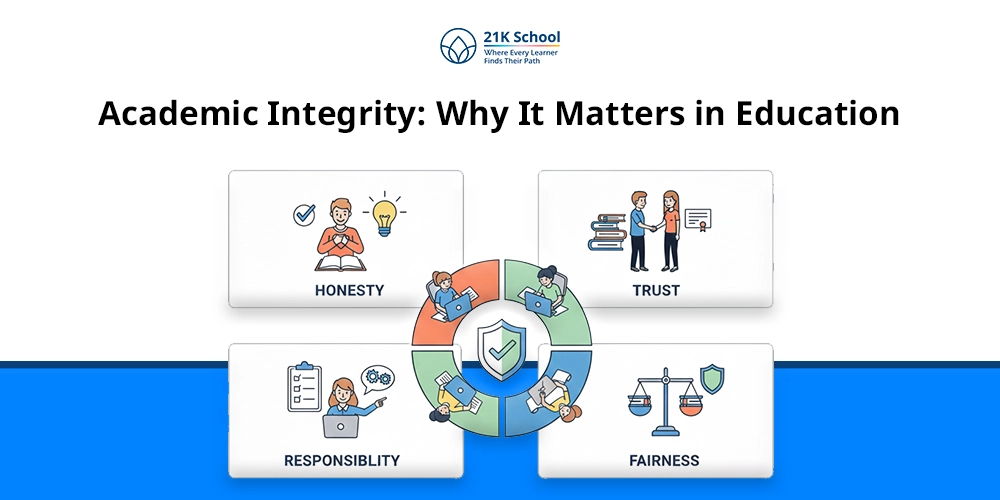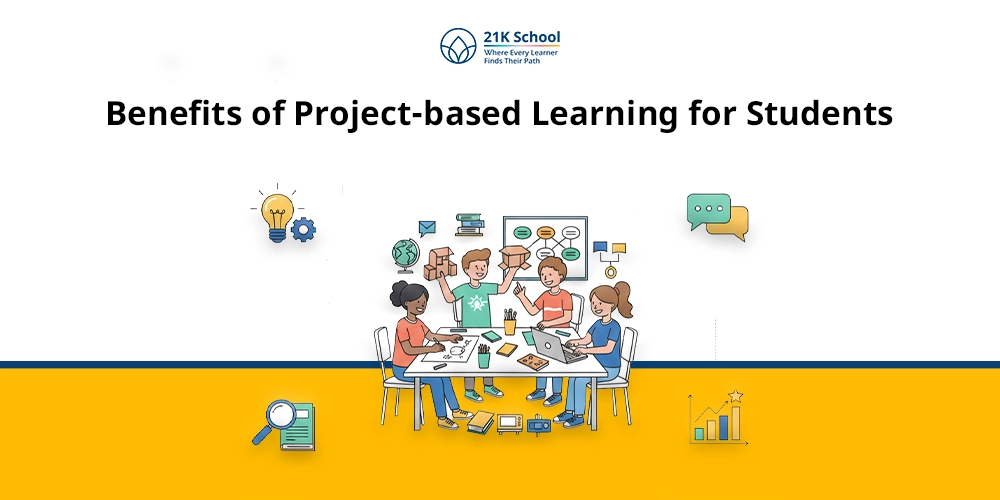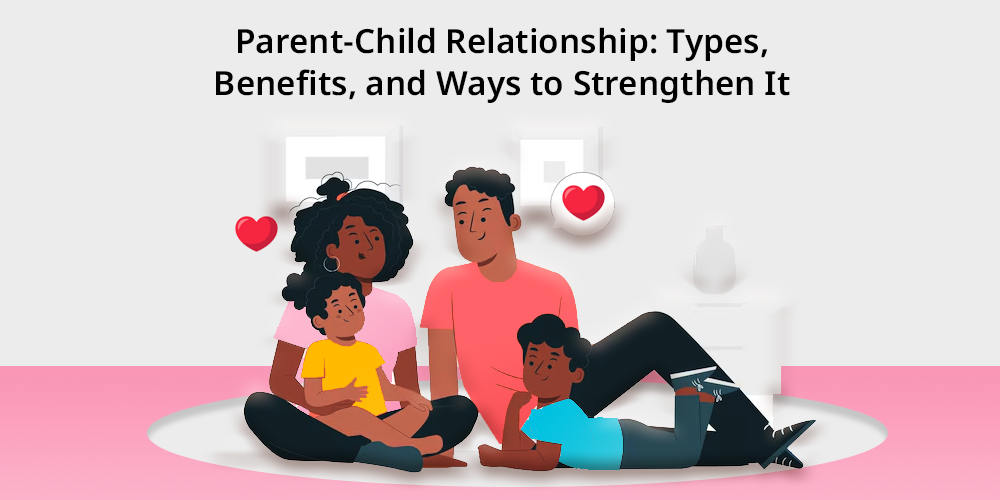
Do you know that the parent-child relationship is considered the purest relationship in the entire world?
A parent-child relationship is a strong bond between parents and their child. A positive relationship between child and their parents is essential to promote holistic development among kids.
A positive relationship creates a safe and secure environment for children. The parent-child relationship is one of the most complex and essential aspects of human resource.
Through parent-child relationships, students can understand the world and people more closely and prepare children for the future .
Through proper parenting, children can develop social and emotional intelligence.
Proper parenting will help in building a foundation that promotes future relationships, build collaborative learning environment.
A positive parent- child relationship can be built by spending quality time, creating a comfortable environment, understanding each other, etc.
Contents
What is a Parent-Child Relationship?
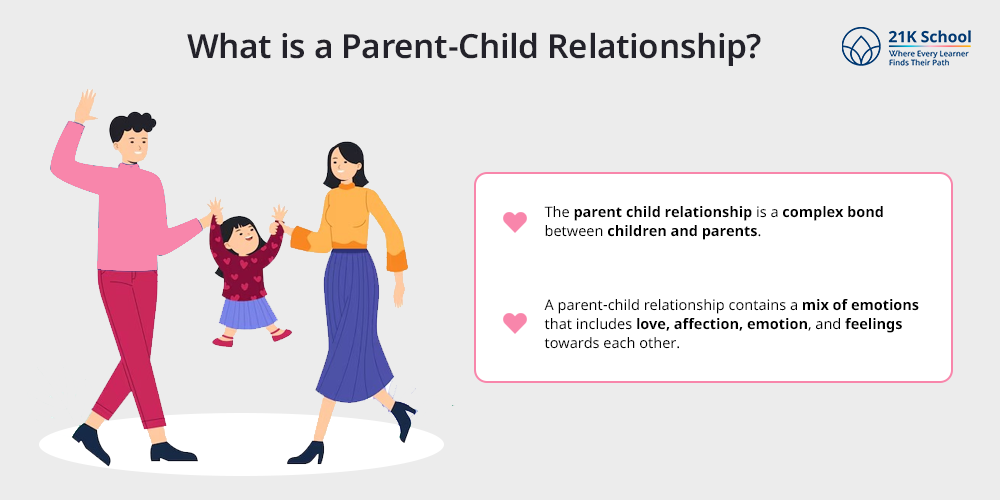
The parent child relationship is a complex bond between children and parents. A parent-child relationship contains a mix of emotions that includes love, affection, emotion, and feelings towards each other.
Parent-child relationship helps in boosting mental health as well as provides basic life long knowledge. This also helps in the cognitive development of kids .
Parents are the first life teachers for children as they take the responsibilities to care for the child, provide all the necessities, and give guidance.
Parent-child relationships can be categorized into two parts: healthy and unhealthy.
Healthy relationships are a type of relationship in which a safe and reliable atmosphere is created for children, provides them with all the essential needs and guides them in every phase of life.
Unhealthy relationships can also be termed as toxic parenting and create an abusive and insecure environment among kids. No proper guidance from parents will be provided and use of punishment to create fear among children’s.
Types of Parent-Child Relationships
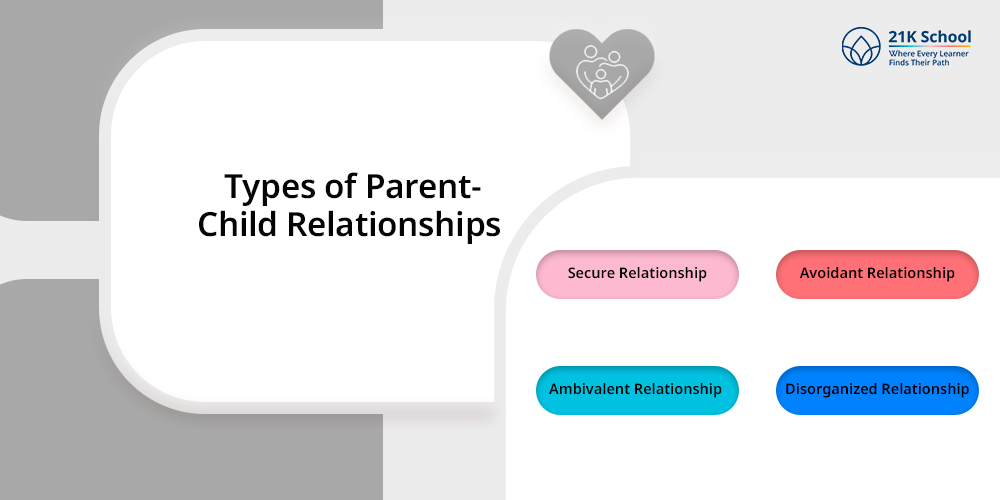
Parent-Child relationship has four types known as secure, ambivalent, avoidant, and disorganized parents. Proper parenting is essential in developing proper relations, habits of mind and understanding life-long goals.
The attachments towards the parents of children are based on how children were treated.
The responses and attachment towards parents depend upon how a child is nourished; the strongest relationship among child and parent is a secure relationship.
Sometimes, people of different cultures have their own way of expressing love and affection.
Here, you can check the types of Parent-Child relationships.
1. Secure Relationship:
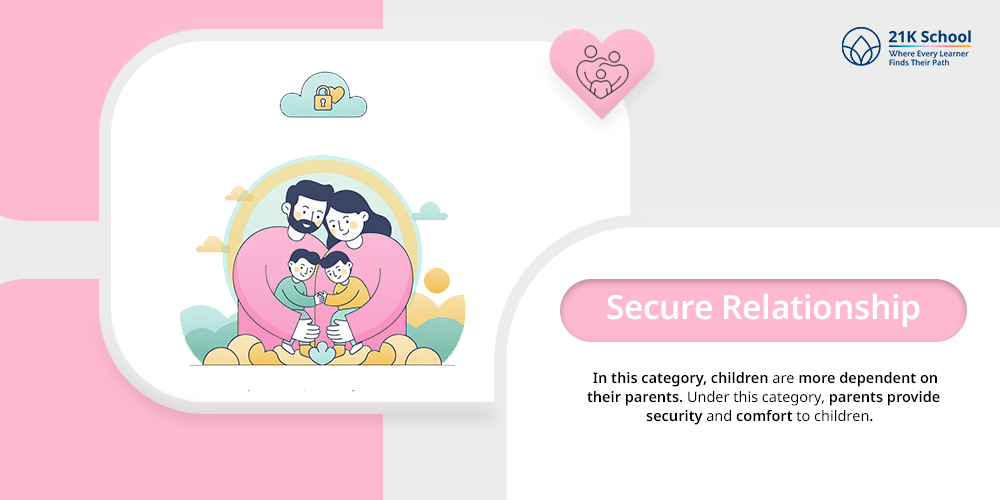
A secure relationship is considered the strongest relationship. In this category, children are more dependent on their parents. Under this category, parents provide security and comfort to children.
Under this category, children become dependent on parents, and this makes friendly behavior towards adults.
As this category also helps in developing friendly nature among children’s towards each other. This also boosts students mental health .
2. Avoidant Relationship:
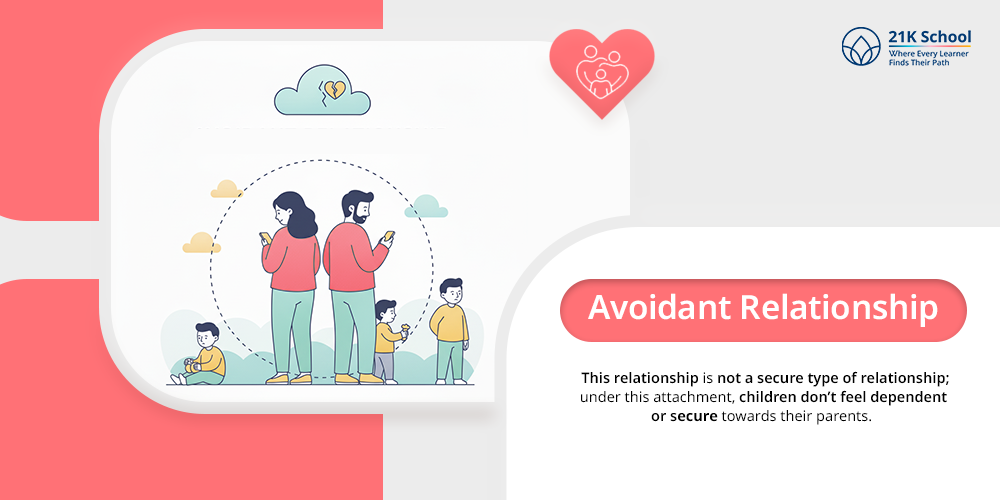
This relationship is not a secure type of relationship; under this attachment, children don’t feel dependent or secure towards their parents. Avoidant children are independent and don’t feel secure with anyone.
Children in the avoidant category find it difficult to connect with other children. Under this category, children become more aggressive, develop complexes, scream, violent, etc.
3. Ambivalent Relationship:
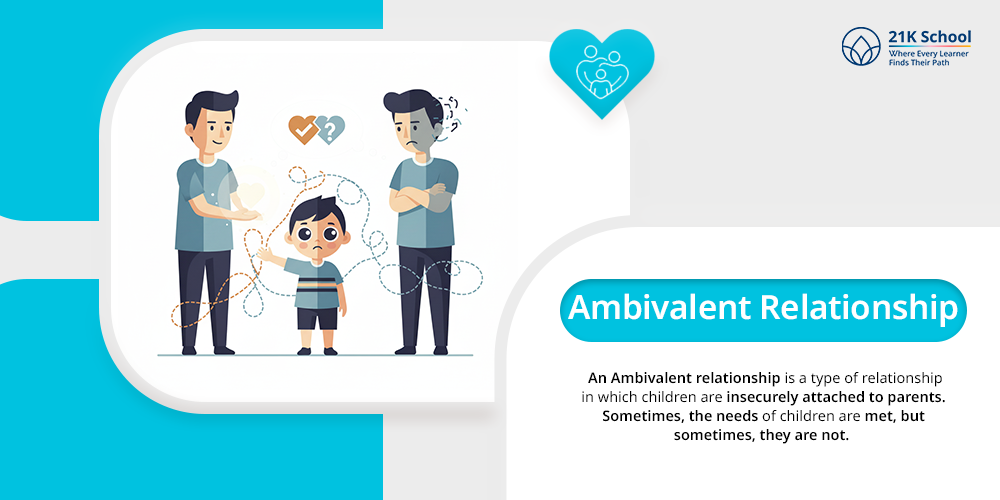
An Ambivalent relationship is a type of relationship in which children are insecurely attached to parents. Sometimes, the needs of children are met, but sometimes, they are not.
Children with ambivalent criteria are clingy and over emotional. Ambivalent children always face frustration and always want to be the center of attention.
4. Disorganized Relationship:
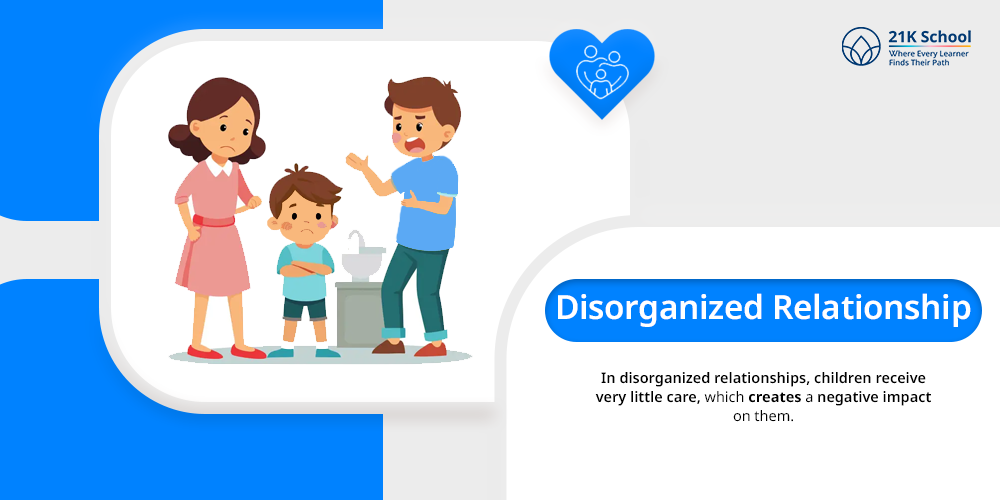
In this relationship, children don’t know what to expect from their parents. In this attachment, children will know the parent’s reaction and how to cope with it.
In disorganized relationships, children receive very little care, which creates a negative impact on them. Children with disorganized relationships find it tough to deal with other children.
Under this category, children always remain confused and nervous, which also generates complexes.
How to Strengthen Parent-Child Relationships?
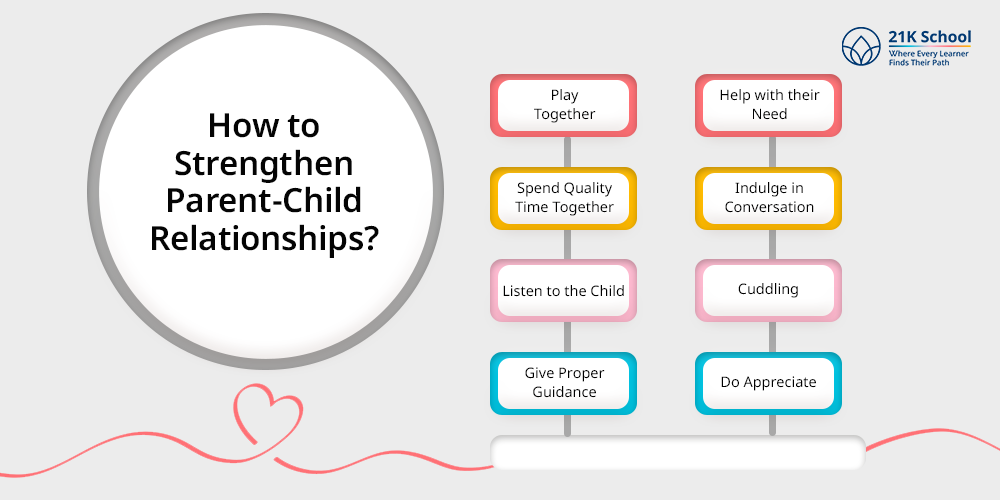
The relationship of children with parents is one of the strongest and healthy relationships. A positive parent-child relationship creates a foundation among kids, this also allows children to determine whether they are safe, secure, and loved.
Parents can build positive relations with kids by being together at every moment of the child’s life. It is essential for parents to guide children slowly and in a sensible manner because at a young age, children are so sensitive.
Developing a sense of trust and spending quality time with each other helps in strengthening the relationship. Below, you can check how you can strengthen the child relationship.
1. Play Together:
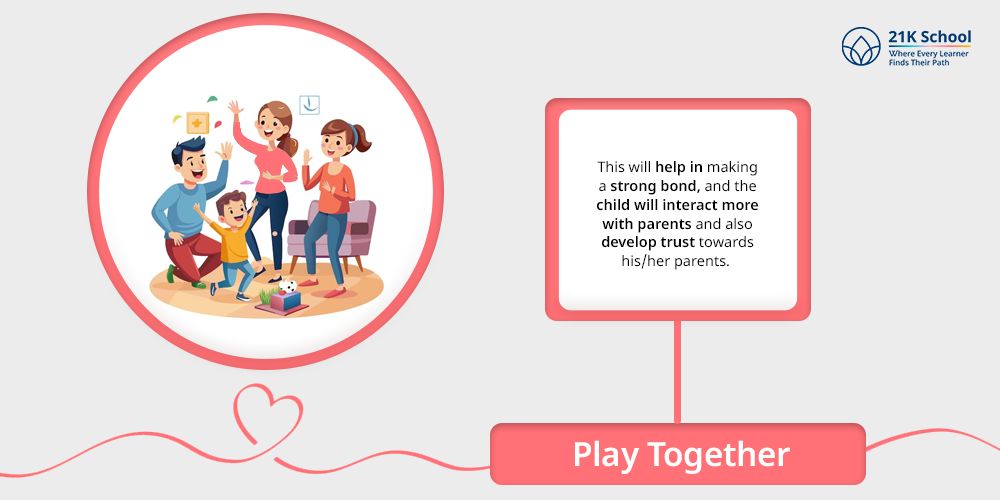
Playing together is one of the most efficient ways to make positive relationships among parents and children.
This will help in making a strong bond, and the child will interact more with parents and also develop trust towards his/her parents. Playing with children helps them to develop skills, emotions, creativity, and social skills.
2. Spend Quality Time Together:
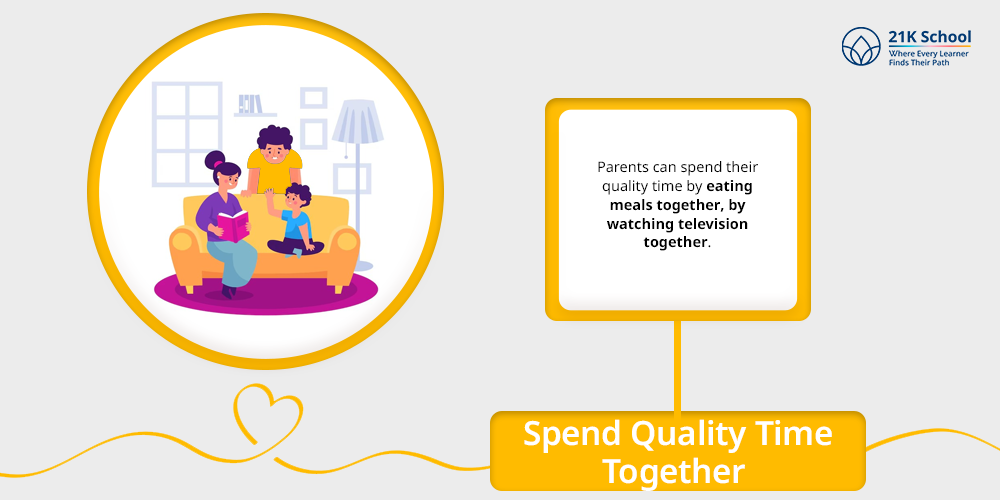
One of the best ways to build relationships is to spend time together. This allows kids to develop social skills and build trust.
Parents can spend their quality time by eating meals together, by watching television together. This will help them to enjoy each other’s company and create positive relationships. This also enhances social emotional learning among students.
3. Listen to the Child:
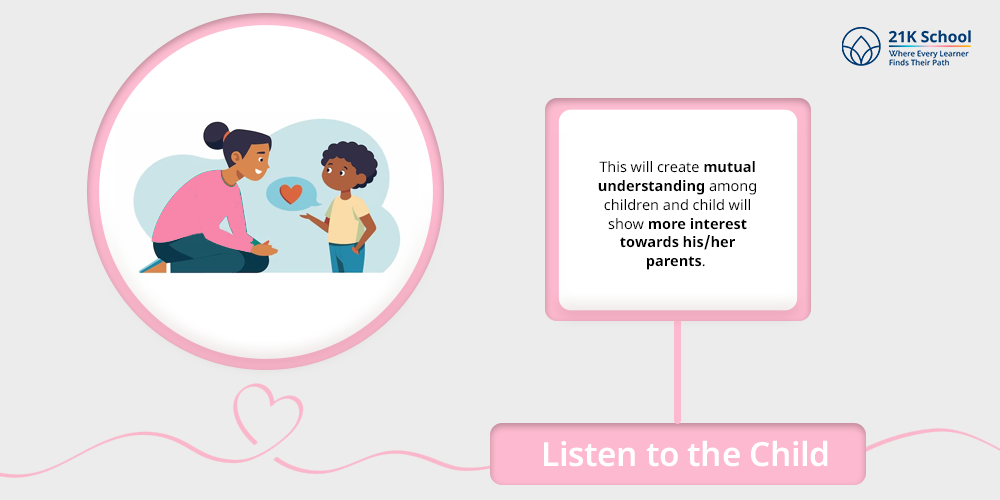
Listening is the first part of communication, and a good relationship starts with listening. As a parent, it is essential to listen to your child’s problem and help them with what they need.
This will create mutual understanding among children and child will show more interest towards his/her parents.
4. Give Proper Guidance:
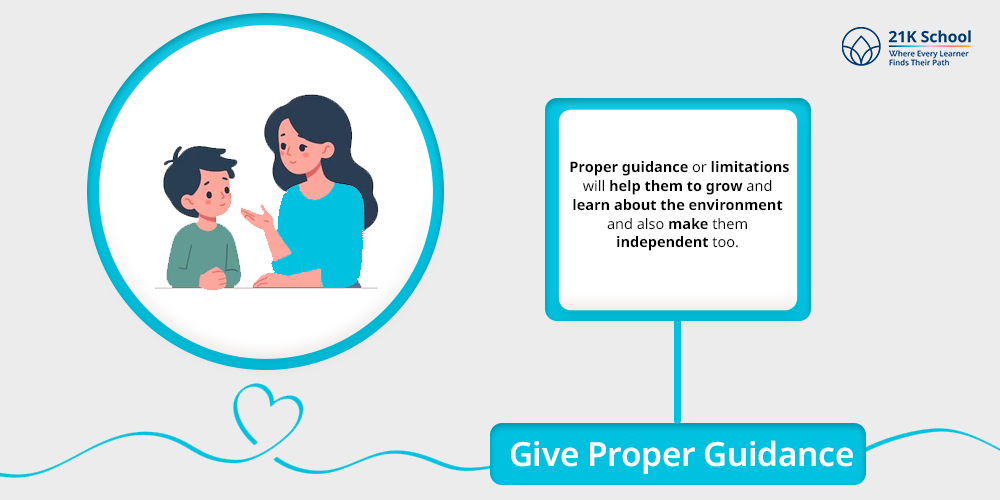
Guidance is the most essential part of fostering a child. Proper guidance or limitations will help them to grow and learn about the environment and also make them independent too.
Always teach students discipline and make sure that they understand the consequences of breaking any rules or regulations.
5. Help with their Need:
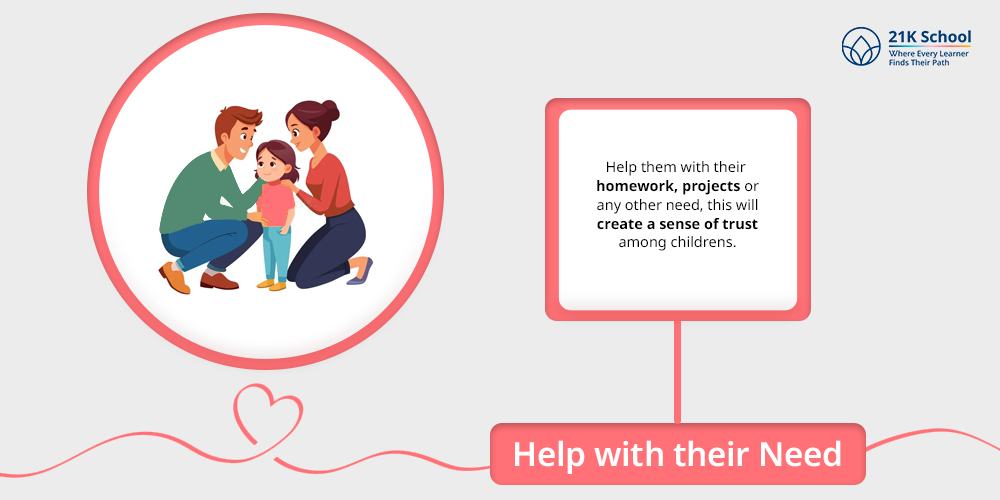
One of the effective ways to build positive relationships is by helping children. Help them with their homework, projects or any other need, this will create a sense of trust among childrens.
Parents views on education are also essential in understanding the effects of child support. Taking care of your child and meeting their needs is also a great reminder of your ability to support your child.
6. Indulge in Conversation:
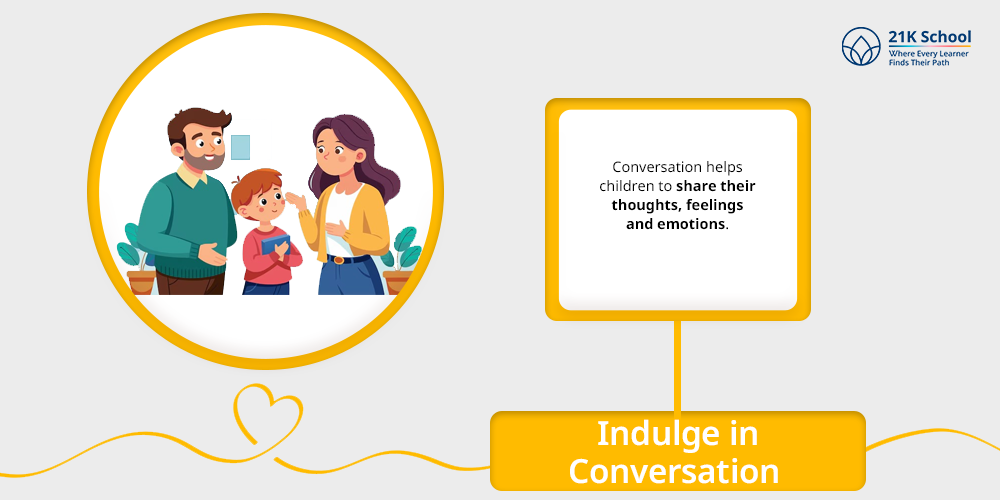
Have a conversation with your child. Conversation helps children to share their thoughts, feelings and emotions.
As a parent, it is essential to pay attention to your child’s conversation and what he/she is trying to say.
This will create a sense of care among children. Young kids require someone who can understand their feelings, and through this, they can build trust in parents.
7. Cuddling:
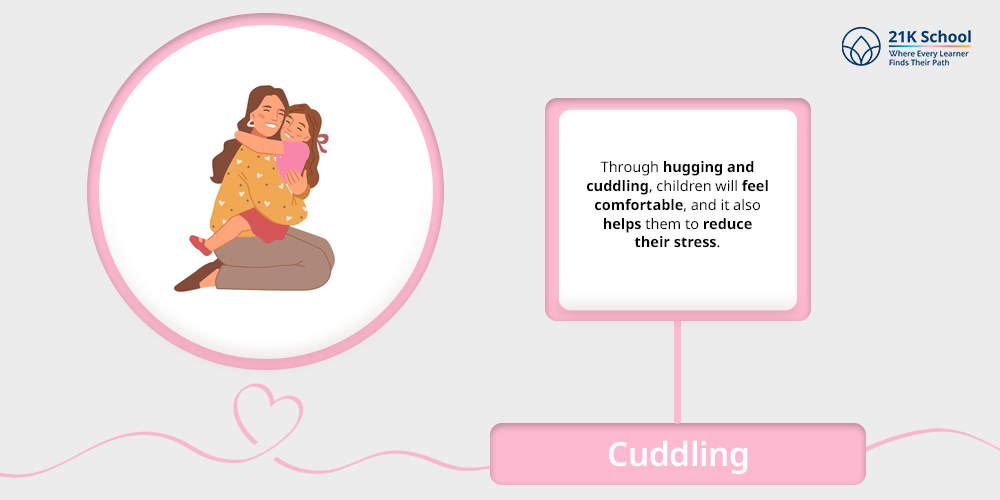
Cuddling is one of the effective parenting strategies to make your child feel close. This will create a sense of affection among kids.
Through hugging and cuddling, children will feel comfortable, and it also helps them to reduce their stress.
8. Do Appreciate:
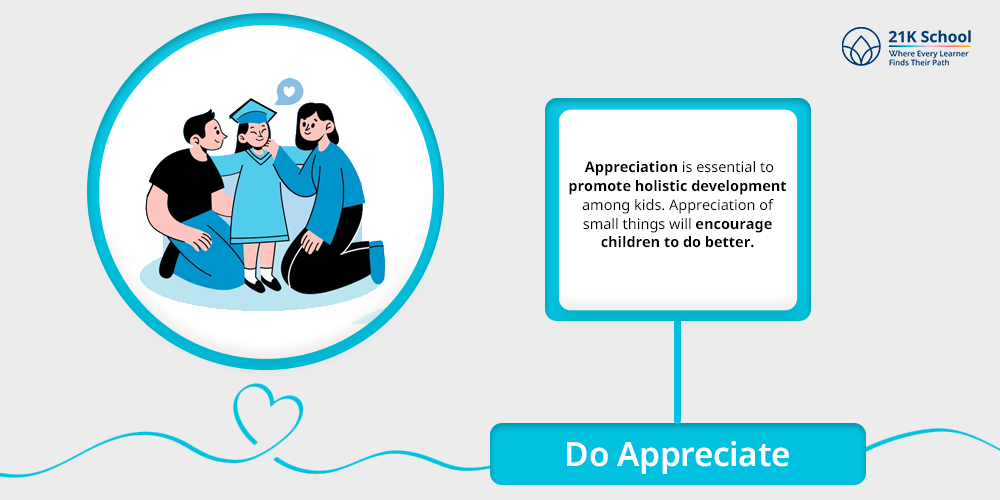
Appreciation is essential to promote holistic development among kids. Appreciation of small things will encourage children to do better.
Through appreciation, kids will show more affection and interest towards their parents. This also boosts their learning outcomes and enhances their understanding level.
Conclusion
A child’s emotional, social, and cognitive development are greatly influenced by the fundamental and complex bond between parents and children.
A child’s overall development depends on the security, trust and love that are fostered by a supportive and caring relationship.
Parents can foster a nurturing environment that enables their children to flourish by being aware of the various kinds of parent-child relationships and actively seeking to deepen this connection through affection, guidance, quality time and effective communication.
In the end, supporting this relationship benefits the child as well as the family dynamic, creating the foundation for wholesome relationships and a happy life.

